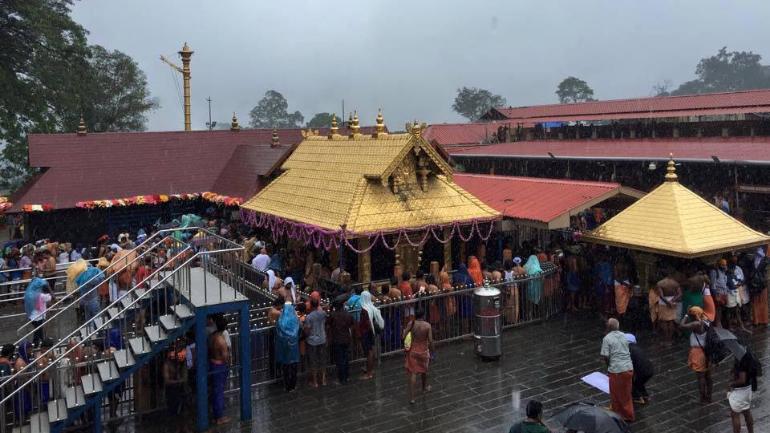New Delhi: The Supreme Court said Monday that its five-judge bench can refer questions of law to a larger bench while exercising its limited power under review jurisdiction in the Sabarimala temple case.
A nine-judge Constitution bench, headed by Chief Justice SA Bobde, rejected vehement preliminary legal objections of senior advocates like FS Nariman and Shyam Divan that a five-judge bench November 14 last year was wrong in making a reference to a larger bench without deciding the review petitions challenging the 2018 Sabarimala verdict, which had allowed women of all age group to enter the hill-top shrine in Kerala.
“We have heard the parties at length. For reasons to follow, we hold that this court can refer questions of law to a larger bench in a Review Petition,” the bench said in its order.
The bench, also comprising Justices R Banumathi, Ashok Bhushan, L Nageswara Rao, MM Shantanagoudar, SA Nazeer, R Subhash Reddy, BR Gavai and Surya Kant, then read out the seven questions framed by it on scope of religious freedom in various religions.
It said the day-to-day hearing to settle the issues would commence February 17 onwards and the opening submissions would be made by Solicitor General Tushar Mehta, followed by senior advocate K Parasaran.
Lawyers will have to give compilation of judgements to be relied upon by them along with the list of advocates who would argue in the matter, the bench said. The bench added that it would allocate time to them to ensure speedy completion of the proceedings.
Making clear that it was open to addition and deletion of issues framed, the bench said it would consider, ‘What is the scope and ambit of right to freedom of religion under Article 25 of the Constitution of India?’
About the second issue, it said: “What is the inter-play between the rights of persons under Article 25 of the Constitution of India and rights of religious denomination under Article 26?”
The third question is whether rights of a religious denomination under Article 26 are subject to other fundamental rights apart from public order, morality and health.
“What is the scope and extent of the word ‘morality’ under Articles 25 and 26 of the Constitution and whether it is meant to include Constitutional morality?,” read the fourth question.
The bench said it would also examine the ‘scope and extent of judicial review’ with regard to a religious practice as referred under Article 25 of the Constitution.
“What is the meaning of expression ‘sections of Hindus’ occurring in Article 25 (2) (b) of the Constitution of India?,” read the sixth issue.
The top court said it would examine, as seventh question, as to whether a person not belonging to a religious denomination or religious group can question a practice of that “religious denomination or religious group” by filing a public interest litigation (PIL).
PTI

